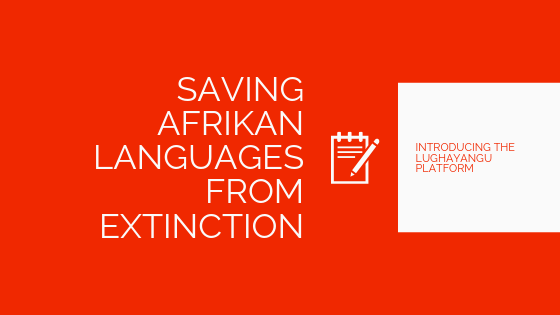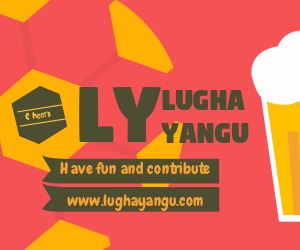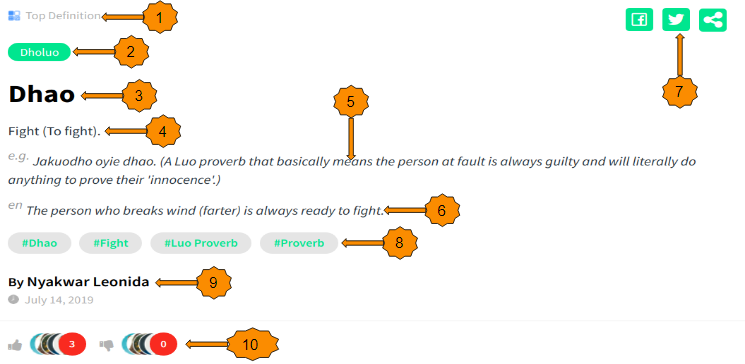Preserving and documenting African Languages
Updated on November 12,2022

Were you to say “Ibaulachi Osagyefo”, “Habari gani Osagyefo” or simply, “Idhi nadi Osagyefo” to your workmate, how confusing would these statements be to your Chinese boss, who only understands “ni hao” for ‘hello’?That is why there exists a ‘working language’ in every organization. Other than being used as a means to open secrecy, your mother tongue may have identified you and Osagyefo with one group or classified your history and the world view of your people.
Kinyanjui, a keen observer during the incident, may have said to himself, “Oh! So Osagyefo and Mekatilili are both Igbo? One of them must be having Palm wine at their home! I must pay them a visit today!”
Yet there are those Comorians to whom if you speak in Shikomoro might just stare back at you with their mouths agape. This is a gesture indicating the loss of one’s roots and an admission of guilt with the word, “We should be the ones teaching this foreigner our mother tongue” written all over their faces. I view them with horror. To add insult to injury, you might bump into a Burkinabe who only understands French yet his/her parents speak Mossi. How nauseating! Yet if you walk a few kilometers southwards you would be greeted in potentially 45 different languages by the Kwa speakers (people of the same origin). Better still, were you to visit Ethiopia, everyone both at home and the office would speak to you in Amharic. A clear recipe of the cohesion within the Afar, Oromo, and Tigrinya that enabled them to easily voice together and overcome the Italians during the battle of Adowa.
A future that smells oblivion
If you peer into the future, one thing would not escape your wide-set eyes. Afrika is currently in its mesozoic era, we are the dinosaurus and an asteroid is hovering over our sky. The enemy wears a form that my brothers have dubbed the “imperials”. It had once hit us and engulfed our unprepared lungs with its poisonous smokes of assimilation, association, and apartheid. Clearly overwhelmed beyond measure, we quickly succumbed to its ways of life and quickly gave up ours. We clearly forgot and gave up our artistic talents and treasures, rich culture and religion, we exchanged our way of barter that fostered neighborliness for their capitalist way that fostered rivalry. We quickly welcomed their new languages as the new way to exchange ideas as we allowed them to woop and whack us whenever we dared to use our own languages. So we watched as our languages peeped fondly beyond our tongues. And so our new mothers possesses not a tongue but speak foreign fluently. They are flue-foreigners, I say.
Lest Afrika rises ostensibly and gazes beyond the horizon, she may not be able to realize the intents of the imperialists: to absorb the differing ethnic heritage of Afrikans into their dominant culture. This time round they will institute their languages in our own institutions. Verily, I say unto you, although it is very possible to maintain a language by word of mouth (orally), when a documented culture e.g. English penetrates its spheres, it may not survive that long. They will erect a health center within our own health districts, we shall travel on their roads within our own rural country, we shall dock their ships in their harbours along our coastlines. To refrain from naysaying, I am an Afro-futurist, and the dinosaurs may well survive the asteroids of the Triassic world. We may rule the Jurassic world and even welcome the Cretaceous world of the next millennium. If and only if we possess foreknowledge.
A need to preserve our languages now!
Whether for heritage or scientific reasons, our languages must be recorded. We must codify our history. The world must know of us the way we see ourselves. Unless the lion (master hunter) learns to read and write his own stories, the stories will always glorify the human hunter. Everyone wants to be remembered yet none is willing to harvest the discipline needed to record his own autobiography. Importantly, however, one can only begin to appreciate all the subtleties and complexities of a language if you have some speakers left to give you the dynamics and social context thereof. Lest every Tom, Dick, and Harry begins to falsify and pollute the contents, I, the language native, must be its author and curator. Simply put, languages are best documented when they are still alive by the people who use it.
When a Luo woman talks of “nyamburko”, other than just categorizing the language of origin, one would investigatively try to fathom the nature of the mind of the Luo people. What were they thinking when they decided to name a car nyamburko? It would help you understand the different ways in which people categorize their experiences. To end with, we need to document our experiences ourselves, we need to document our languages. A solution is, therefore, paramount.
Introducing “Lugha Yangu”

Lugha Yangu is an online platform/dictionary that aims to document and preserve Afrikan languages for posterity. The beauty of it all is that contributions related to your language are done by you who best understands the dynamics of the language. Better yet, while doing so, you will retain all the credits. It’s an exemplary effort to utilize the common-day Internet to achieve work of significance, that which is core especially for the Afrikan coder who spends most of his hours coding for someone else.
Features of Lugha Yangu
Access:
One can simply browse the URL “https://www.lughayangu.com ” to access the platform and begin searching for a word of choice in the native Afrikan language.
Contribute
In order to contribute, one should first create an account by clicking ‘register’ at the top menu and then filling up the form shown below.
Once you have an account, all the definitions you will make will be under your name.
To contribute:
- Click "create word" or "Define a word" (This loads the create page form.)
- Enter the word you want to define.
- Next, type or select the language you want to give a definition.
- Then give the definition or meaning of the word followed by an example of how the word or phrase can be used in a sentence.
- Finally, you can give the translation of the example you have given.
- To make your word easy to find, you are advised to add tags of related words in the last field in the form.
To access your definitions, you will simply have to click on my definitions.
Searching for a word
Simply enter the word you are looking for in the search bar and press ‘Enter’ or click the search icon.
What a definition entails
When you click on a word to view its definition, you will see a page similar to the picture below.
- Top definition: A word can have multiple definitions. The definition with the most likes and the least dislikes gets the top definition badge.
- Language: Specifies the language of the definition eg. Igbo, Swahili, Kinyarwanda, Kikuyu
- Word: The word being defined.
- Meaning: Gives the meaning of the word
- Example: Sentence example of the word usage in the given language
- Translation: English translation of the example sentence
- Share: Easily share your definition via social media
- Tags: Tags are used to link definitions that are related. One definition can have multiple tags. For example “Good morning” tag shows definitions in all languages with that tag.
- Author: Specifies the contributor of the definition. Each user has a unique username.
- Like/Dislike: The purpose of the Like button is to ensure that the best definitions rise to the top and vice versa
How to access a definition of a language under multiple languages
Click on “browse”. (Loads the language page). Select the language of interest to get a list of popular definitions.
Benefits of Lugha Yangu.
Lugha yangu boasts the following benefits:
- Preserving the native languages for posterity.
- Easy access to the meaning of any word in any native language at your comfort.
- Enhances diversity by exposing one to various languages/cultures.
- Fundamental educational platform especially for research purposes.
- Proof of expertise
- An avenue to expand your brand (Brand awareness)
Recommendations
A language must evolve. When one is talking about preserving a language, one must also consider the following:
- Most native languages have existed for more than a millennium (1000 years). I know not of a language that is a century old (100 years).
- Yet human beings continue to evolve and as they do so they invent new creations that become an integral part of their lives.
A language should, therefore, keep its official custodians who ensure that the language can encompass everything new that gets invented. If, for example, your mother tongue does not have the official word for an invention like the transformer, this language would surely be rendered useless in a scientific community. If this trend continues even to the business community and other aspects of life, then gradually, a language becomes insignificantly useful and would only be used at home for greetings. Although uncommon to many, this is the beginning of the end of a language. It would melt my heart if Lugha Yangu would keep official custodians of every language that ensures that this does not happen. The custodians would be responsible for integrating these ‘new words’ into their languages. A very daunting task, I may say. It requires the help of the reader to identify these custodians. I would love to see my language being used entirely in a battlefield to describe ammunition and the like.
Conclusion
A story is often told of an experiment by the Allied Powers notably the USA during the Second World War(1939-1945). About 600 Canadian aboriginals were summoned by the American army commanders and then hurled into some sort of test to see which was the ‘best’ native American language. “Best” was defined in terms of the maturity of the language and how complex it really is. The Cree language won. Surprisingly, the soldiers who spoke the Cree were used by the army as communication personnel. One would aboard a hiwi or fighter jet then spy on the Nazi Germans and then report back to the other one who sat at the base station as a recipient. Albeit the Central powers (Germans, Japanese, etc) intercepted their messages via the radio frequencies, they had no idea what in the world those two soldiers were talking about. Yet the Nazi messages encrypted via the Enigma were being decrypted by the Turing Machine at the Bletchley Park. Obviously the world’s bloodiest war came to an end because of a native language.